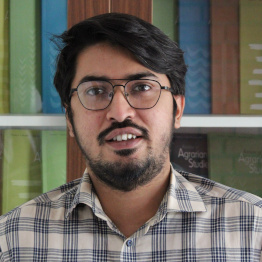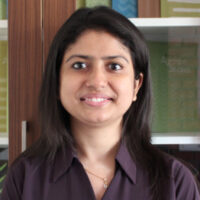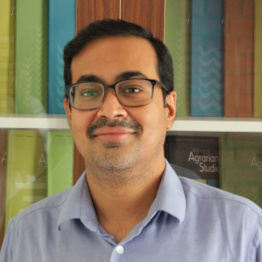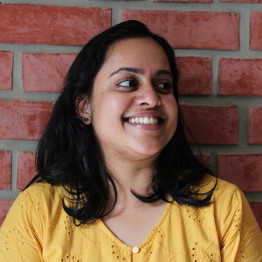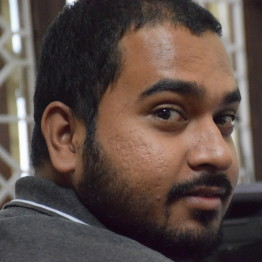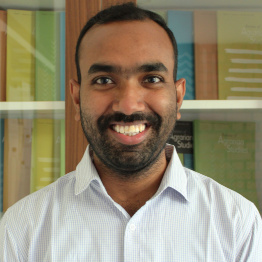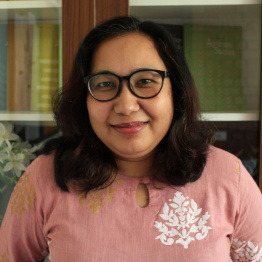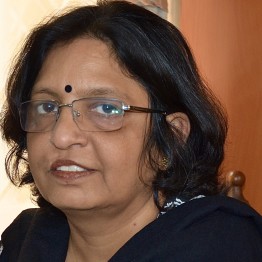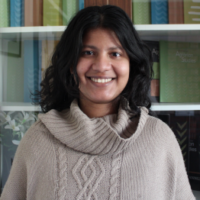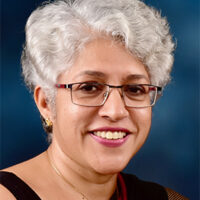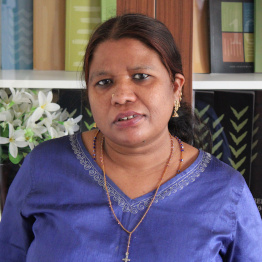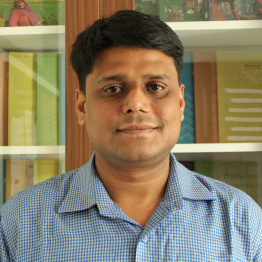Workshop on Agrarian Relations
The Foundation for Agrarian Studies (FAS), along with Research Initiatives Bangladesh (RIB) and Rosa Luxemburg Stiftung (RLS) conducted a two-day virtual workshop on Agrarian Relations, on July 30 and 31, 2022.
The workshop began with a session of introductions by Suraiya Begum, Assistant Director of RIB, and Sandipan Baksi, Director of FAS. Representatives from RIB, FAS and RLS were welcomed by Dr Shamsul Bari, Chairperson of RIB, followed by the Inaugural Address by Nadja Dorschner, Resident Representative of RLS South Asia.
The introductory session was followed by a keynote lecture by Professor VK Ramachandran, managing trustee of FAS, on the continued relevance of the agrarian question in contemporary India. He deliberated upon the different component parts of the agrarian question in India. This lecture was Chaired by Professor Monirul Islam Khan, Department of Sociology, University of Dhaka. The Chair highlighted some of the features of the agrarian question in Bangladesh.
The second session of the day saw presentations by Arindam Das, Joint Director of FAS, and Niladri Sekhar Dhar, Associate Professor, Centre for Economic Policy and Public Finance, Asian Development Research Institute, Patna, Bihar. Arindam discussed the method of village surveys developed by the Foundation and presented insights from the Foundation’s flagship research project, the Project on Agrarian Relations in India.
Niladri’s presentation deliberated on the nature of classes in the Indian countryside. Based on FAS data, he underlined the differentiation in India’s rural economy. He highlighted that the upper strata of the rural population, including the class of traditional landlords and capitalist farmers owned the majority of the productive assets. Manual workers, who form the other end of the spectrum, depend on semi-skilled or unskilled wage work that pays them very little. They are asset-poor without any exception. His presentation also shed light on the heterogeneity among Indian peasantry.
These presentations were followed by a question and answer session on the specifics of the method of village studies.
The second day of the workshop began with a session on “Results from FAS village studies.” Tapas Singh Modak, Associate Fellow at FAS, Aparajita Bakshi, Associate Professor, R V University, Bengaluru, Rakesh Kumar Mahato, Senior Data Analyst at FAS, and Subhajit Patra, Senior Data Analyst at FAS participated in the session that was chaired by Sandipan.
Discussing yield and profitability from crop production, Tapas discussed how the studies on farm incomes are an important aspect of rural inquiries in India and explained details about the methodology developed by the Foundation to calculate the cost of cultivation, and farm business incomes at household levels. He also pointed out that there is a diversity in incomes across various regions of the country, as well as across the socioeconomic classes in the countryside. Aparajita’s presentation was centered around the income levels and poverty in the Indian countryside. She explained the unique method used by FAS to compile data on household incomes in rural India.
Speaking about the living standards of rural households in India, Rakesh highlighted the condition of rural India in terms of housing and basic amenities including electricity, lavatories and drinking water. He argued that the lack of these facilities led to further exclusion and deprivation among socially and economically backward sections of the rural population in India.
Subhajit spoke about employment and wages among manual worker households. He presented evidence of significant underemployment among rural manual worker households, and highlighted the meager level of wages that they earned. He also underlined the persistent gender gap in employment and wages in rural India.
A question and answer session followed these presentations.
The second session of the day included a lecture by Professor Madhura Swaminathan, Trustee, FAS, who spoke on the topic, “Women’s Work in Rural India: Results from FAS Studies.” The session was chaired by Professor Meghna Guhathakurta, Executive Director, RIB. Madhura pointed out that the official definition of work led to undercounting of women in the rural workforce, and underestimation of women’s work. This, in turn, resulted in wrong conclusions about declining female work participation. Time use studies conducted by the Foundation for Agrarian Studies in two villages in the State of Karnataka in India clearly establish that every woman in rural India is a worker during the agricultural season. The Chair in her address provided a comparative account of women’s work in rural Bangladesh.
A keynote address by Professor T Jayaraman, Senior Fellow, MS Swaminathan Research Foundation, on the topic “Climate Change and Agriculture: The Case of India,” followed. Jayaraman spoke about the grave disparity between the developed and developing countries in terms of cumulative carbon emissions. This disparity becomes even more striking in per capita terms. While the Global North has far exceeded its share of the carbon budget, the Global South is far from using its fair share of the budget. He emphasized that the developing countries required carbon for meeting their development needs. Maintaining equity between nations is essential for sustainable development, a point that is often overlooked in climate change discourse.
He also spoke about the effects of the changing climate on Indian agriculture. While there is no clear association between climate change and agricultural growth, climate variability in terms of temperature and rainfall is a concern for agricultural productivity in some areas. He ended his address by noting that the problems of small farmers, who cannot withstand shocks due to climate variability, required detailed studies, and that FAS’s village database offered many possibilities in this regard.
The session was followed by an open discussion Chaired by Professor Monirul Islam Khan, and a general discussion on the possibilities of collaboration between the two organisations.
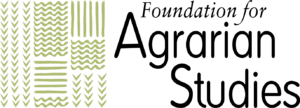
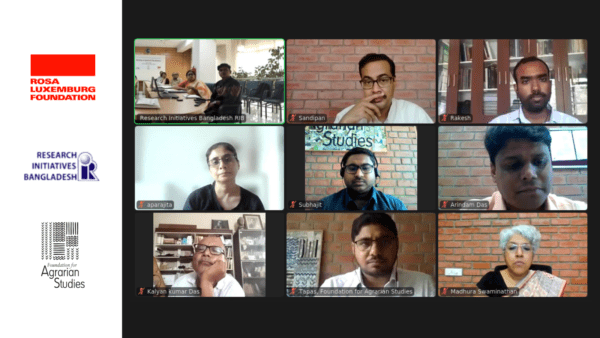

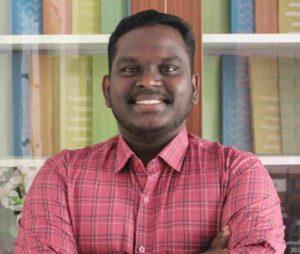
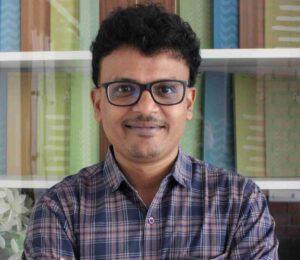
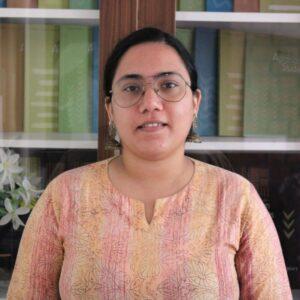
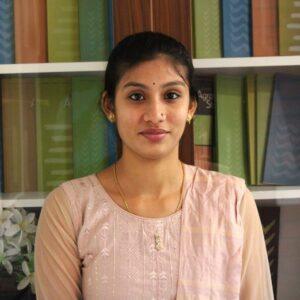
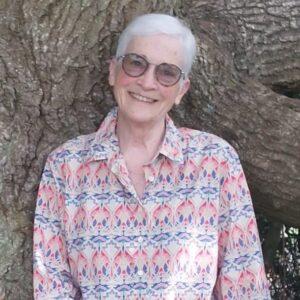




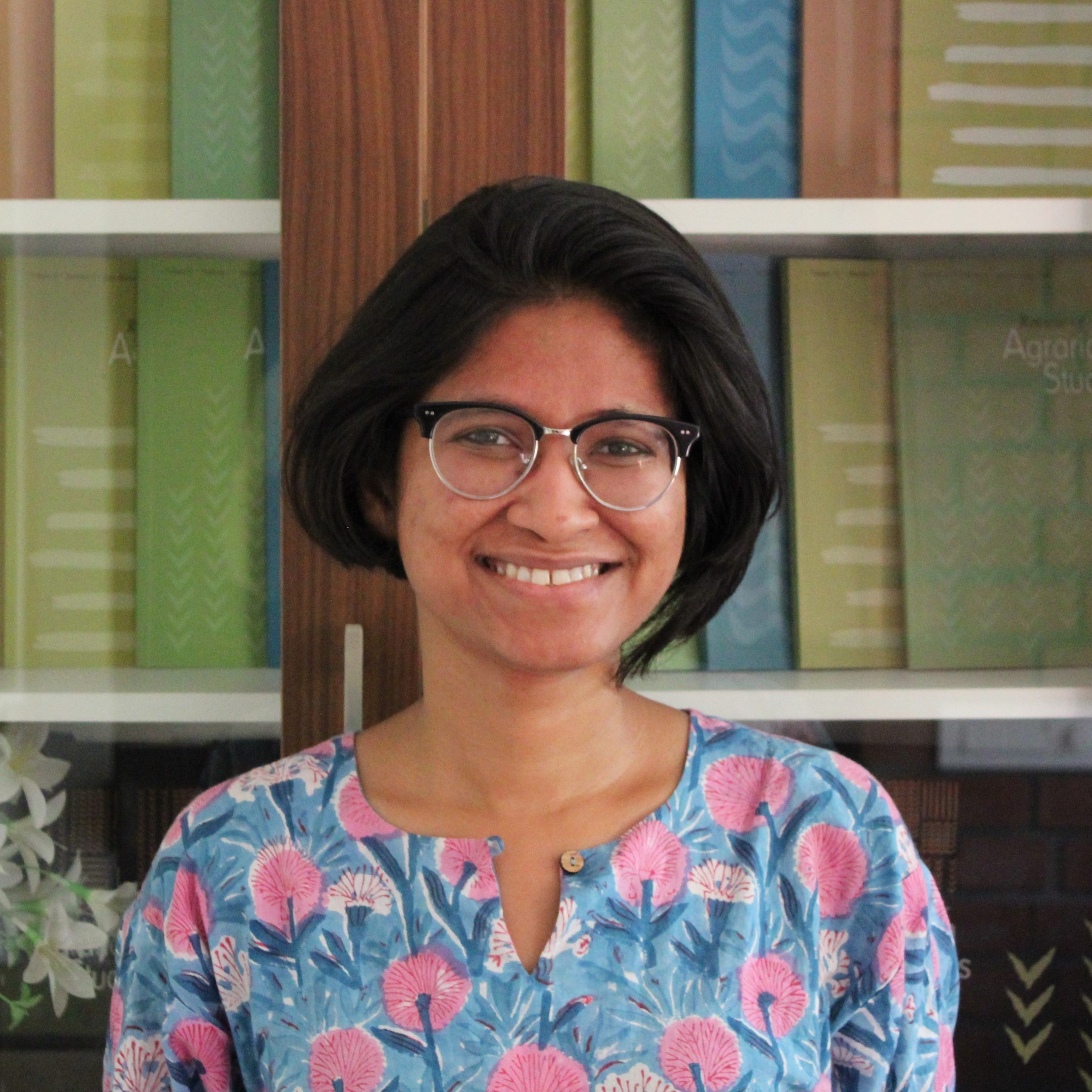
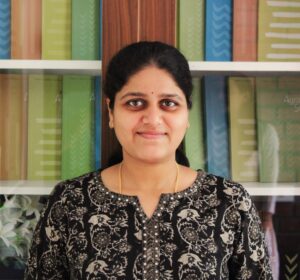
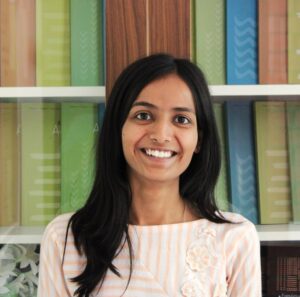
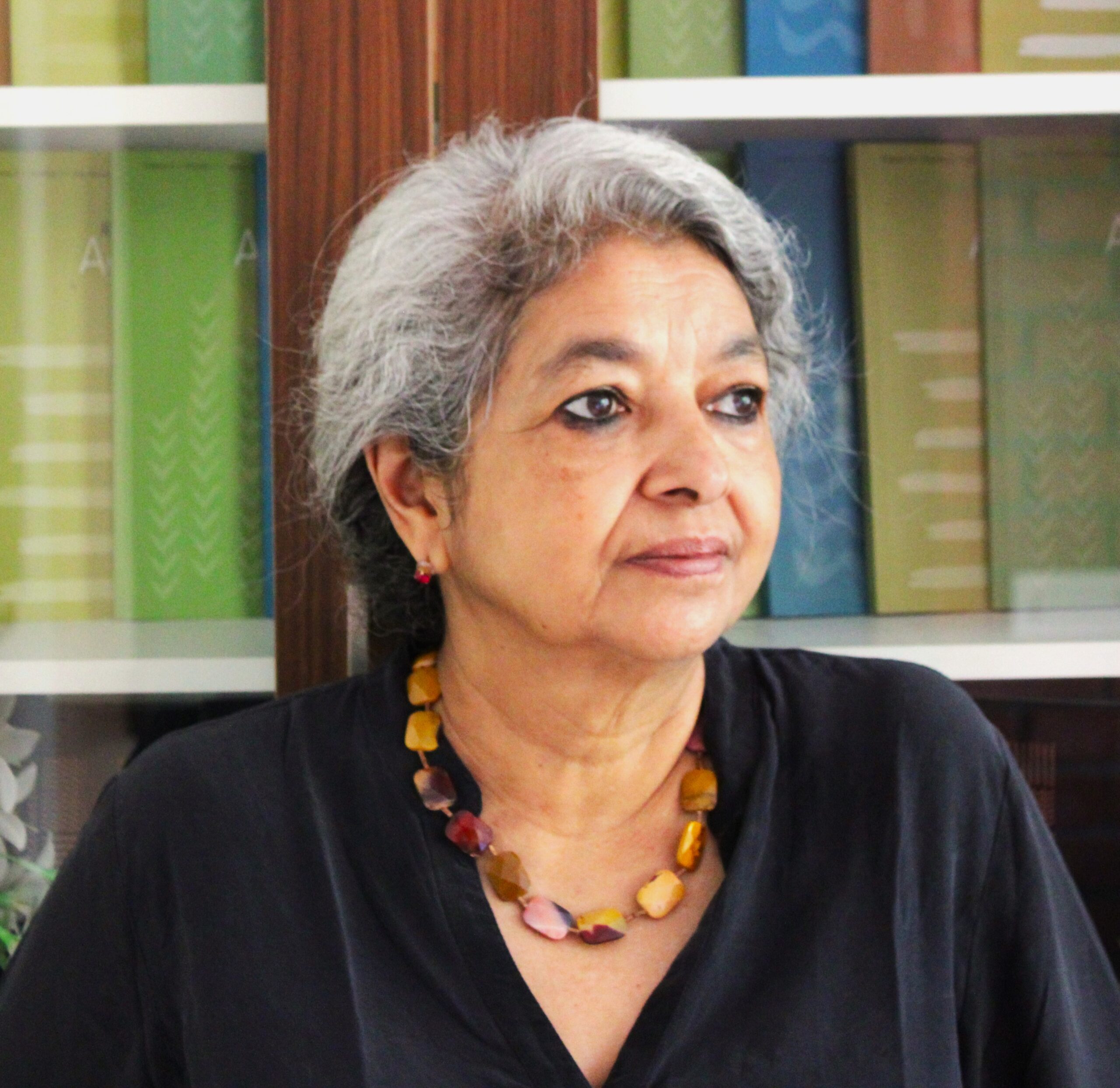
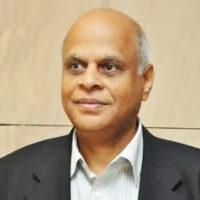
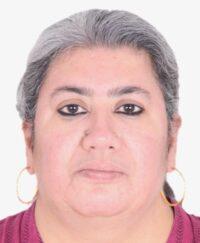




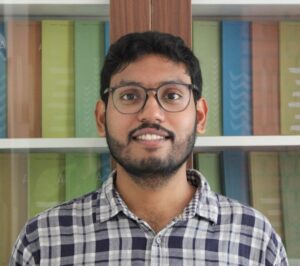

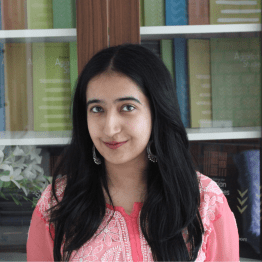
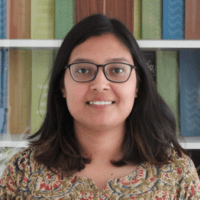
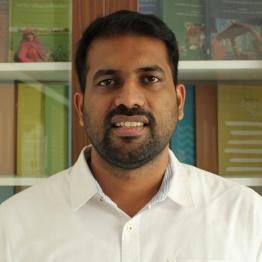

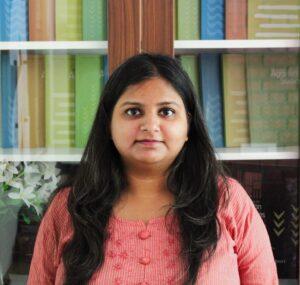
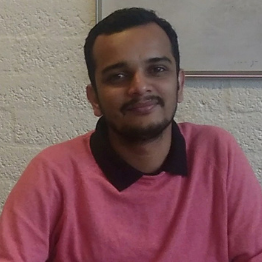

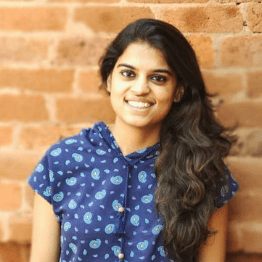


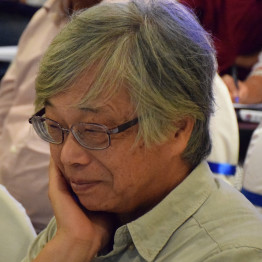
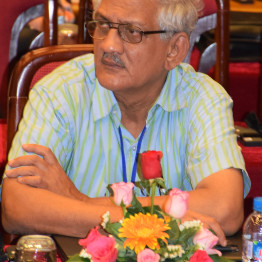
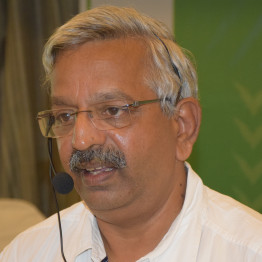

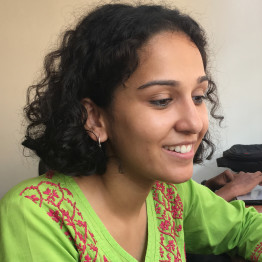
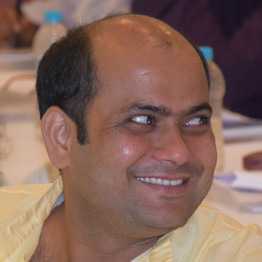

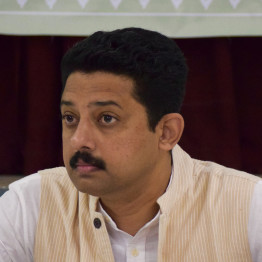

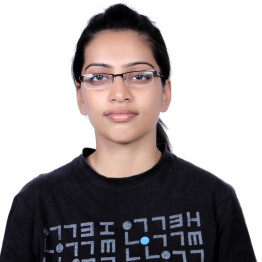
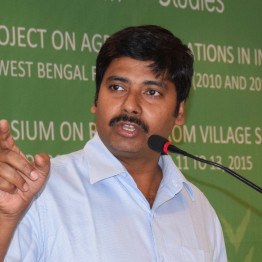
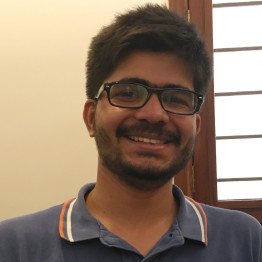
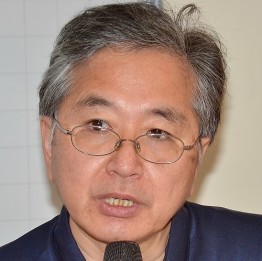

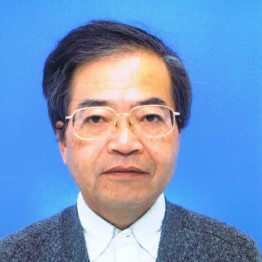
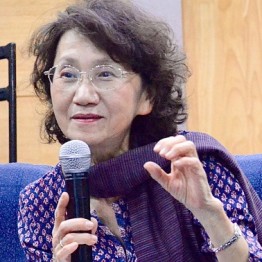

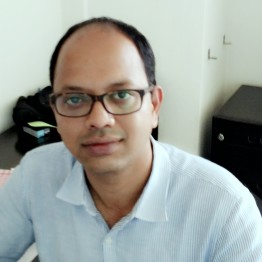

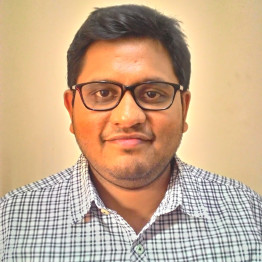
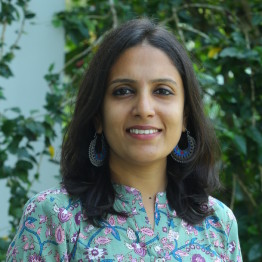
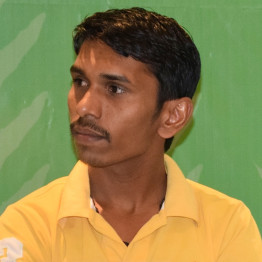
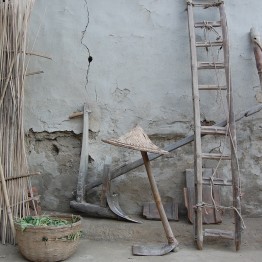
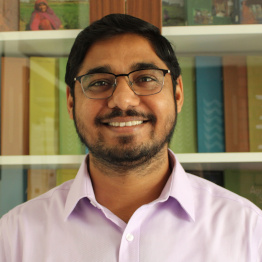
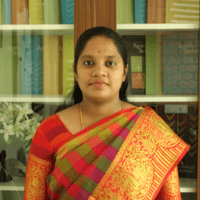 Sudha is an Administrative Assistant of the Foundation. She assists the administrative division of the Foundation and also has taken part in fieldwork organised by the Foundation.
Sudha is an Administrative Assistant of the Foundation. She assists the administrative division of the Foundation and also has taken part in fieldwork organised by the Foundation.
